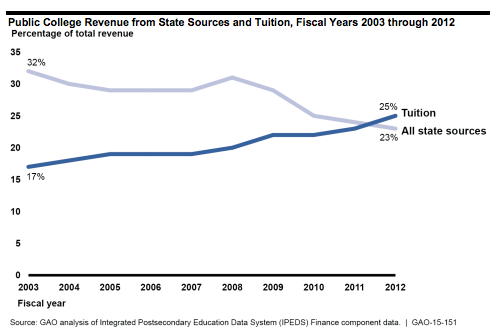The centerpiece of the conversation regarding the increasing cost of college in America is student loans. All things considered, student loans are quite a risky business. Banks and the government issue student loans to 18-year olds (often without a credit score or collateral) for tens of thousands of dollars, with high interest fees and default rates in the double digits, all with the understanding that these loans are an investment in the student’s future. This brings us to the third myth behind the rising cost of college in America: student loans are good debt. For the record, there is no such thing as good debt.
This fallacy comes from a long held belief that a student loan has a guaranteed ROI, but this belief assumes that not only will a college graduate immediately find employment, but that the graduate will earn a living wage. An engineering major may be able to land a job making $75,000+, but an early education student may only expect to make $35,000-40,000 a year. Once students understand that financial aid decisions are made based upon their family’s ability to contribute to their student’s education, and not on the anticipated future earnings of the student, this the myth promoting student loans as good debt begins to unravel.
Moreover, unlike other forms of debt, student loans are not forgiven through bankruptcy, and though federal student loans are cancelled if the borrower dies prior to repayment, private student loan (accounting for $6.2B of student loans borrowed in 2011-2012) repayment obligations carry over to the deceased’s estate or a co-signer. And, though more graduates are taking advantage of federal loan forgiveness programs, most individuals are only eligible if they are in specific types of public service, and only after the borrower has made 120 payments. All of these aspects of student loans are not included in the federally mandated student loan exit counseling.
Student loan debt has also been closely linked to delayed life and financial choices. A 2013 CNN study reports that 40% of those surveyed say they have delayed purchasing a car, 29% have put off purchasing a home, 41% have failed to save money for retirement, and 15% have postponed marriage due to financial constraints related to student debt. A similar 2015 study reports these numbers have only increased, and that borrowers are even willing to forego eating and sleeping to reduce their student debt load. This doesn’t sound like a good ROI.
For many students, including myself, taking out student loans is the only option for covering the cost of an college education. However, selling the idea that student debt is a wise financial investment only promotes the false notion that a paying off a college degree will not be burdensome.

 5 Myths Behind the Rising Cost of College in America: Part 2
5 Myths Behind the Rising Cost of College in America: Part 2